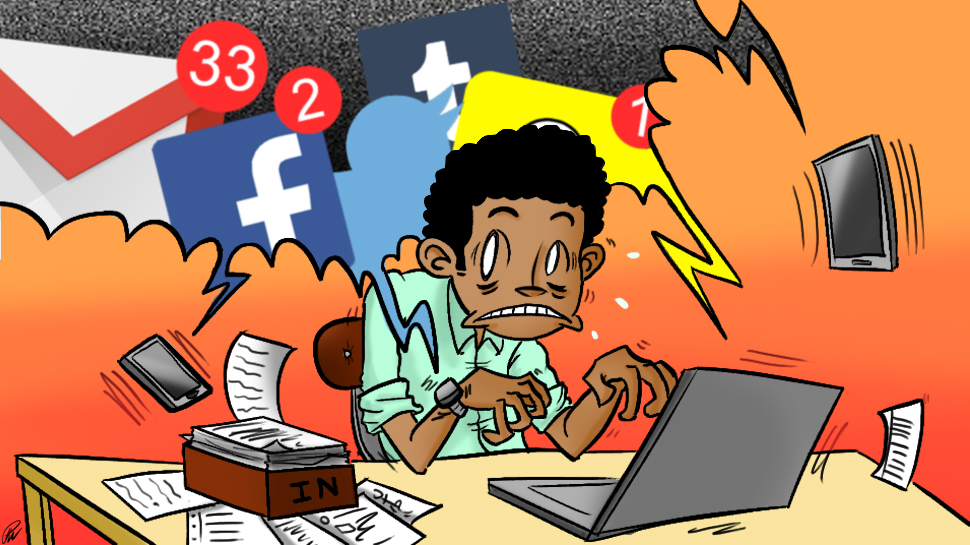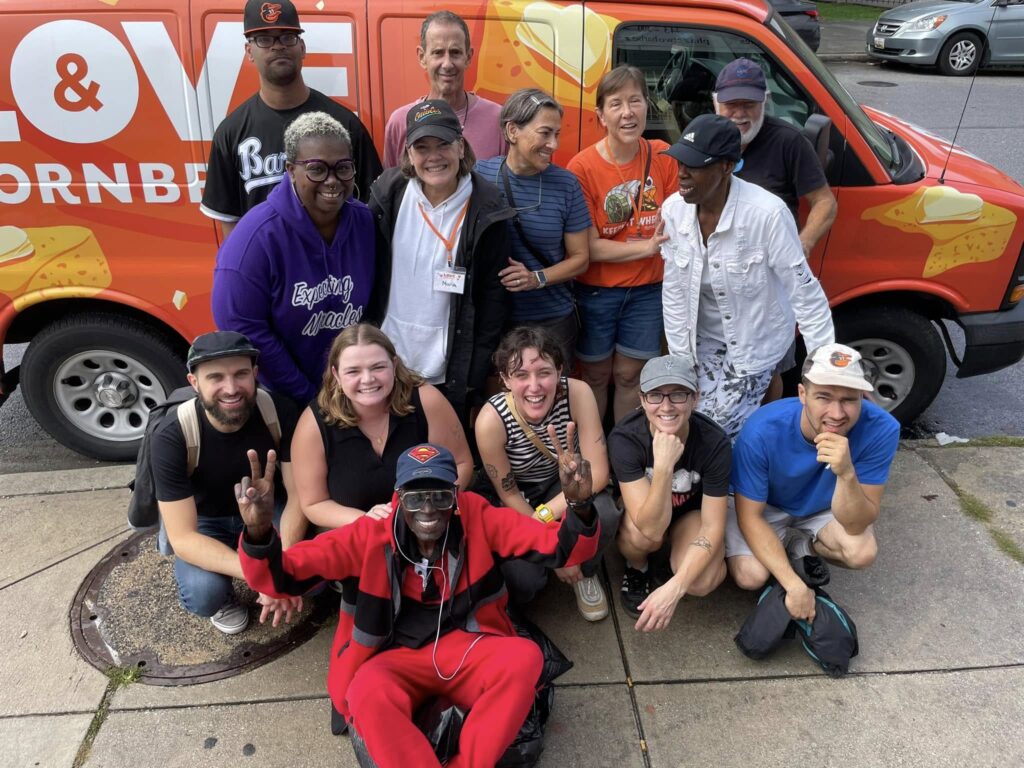“Starve your distractions, feed your focus.”-Unknown

I was serving, as I do most Saturdays, with Love & Cornbread, an organization that’s about more than just food. Love & Cornbread provides nourishment in every sense of the word—healthy, whole foods for the body and a deep sense of connection and belonging for the soul. It’s a space where people come together to care for one another, where giving is not just a gesture but a way of life.
On this particular Saturday, I found myself in conversation with a fellow volunteer, a man whose dedication matched my own. As we worked, he opened up about his past. He shared how he had once been caught in the grip of addiction, a life defined by chaos and hopelessness. But then something shifted—a job came along, offering him structure, purpose, and a sense of worth.
He told me that one of the reasons he works so much now is to “eliminate the distractions.” That phrase struck me. He explained how distractions—whether in the form of harmful habits, negative influences, or idle time—used to pull him away from the life he wanted. He shared how he encourages his younger colleagues to do the same, to stay focused and resist the allure of distractions like social media, comparisons, getting high, or falling in with the wrong crowd.
As he spoke, I couldn’t help but think about my own life. That phrase—“eliminate the distractions”—echoed in my mind. I began to wonder: What does it truly mean to eliminate distractions? And how often do we let distractions—big or small—steer us away from the lives we’re meant to live?
The Nature of Distractions
Distractions are often subtle. They don’t always announce themselves as harmful or destructive. Sometimes they’re as simple as a seemingly harmless scroll through social media that turns into hours of mindless consumption. Other times, they’re rooted in deeper issues—like chasing validation from others, comparing ourselves to someone else’s highlight reel, or numbing our emotions with substances or escapism.
Distractions, at their core, pull us away from our purpose. They create noise, making it harder to hear the quiet call of what truly matters. They fragment our attention and energy, leaving us feeling scattered and unfulfilled.
But distractions aren’t just external. Sometimes the greatest distractions come from within—doubts, fears, procrastination, or the stories we tell ourselves about why we can’t achieve our goals.
Why Eliminating Distractions Matters
When that gentleman said he worked so much to “eliminate the distractions,” he wasn’t just talking about staying busy. He was talking about creating a life with intention, where his focus was directed toward things that brought him stability, growth, and purpose.
Eliminating distractions is an act of self-preservation. It’s about protecting your energy and staying aligned with what’s truly important. For him, his job wasn’t just a paycheck—it was a lifeline, a tool for regaining control of his life and distancing himself from the things that once dragged him down.
For many of us, the stakes might not feel as high. But the principle remains the same: distractions, left unchecked, can derail us from living fully and intentionally. They can keep us stuck in cycles of busyness without progress, or worse, lead us down paths that harm our mental, emotional, and spiritual well-being.
How to Eliminate Distractions
Eliminating distractions requires more than just willpower—it demands clarity, discipline, and a commitment to live intentionally.
- Define Your Priorities
What truly matters to you? Family? Career? Health? Service? Personal growth? When you’re clear about your priorities, it becomes easier to recognize which distractions are pulling you away from them. - Identify Your Distractions
Take an honest look at your life. What’s consuming your time, energy, or attention without adding value? It might be excessive screen time, toxic relationships, or even internal distractions like self-doubt or perfectionism. - Set Boundaries
Once you’ve identified your distractions, create boundaries to limit their influence. This might mean setting specific times to check your phone, saying no to commitments that don’t align with your goals, or creating routines that keep you focused. - Replace Distractions with Purposeful Action
Eliminating distractions isn’t just about removing something; it’s about replacing it with something meaningful. Instead of scrolling social media, spend time reading, journaling, or connecting with loved ones. Instead of comparing yourself to others, focus on gratitude and self-improvement. - Practice Mindfulness
Mindfulness helps you become aware of when distractions creep in. By staying present, you can catch yourself in moments of distraction and gently redirect your focus to what matters.
A Personal Reflection
As I reflected on the conversation I had that day, I began to evaluate my own distractions. How often do I let myself get caught up in the noise? How often do I allow self-doubt, busyness, or fear to keep me from fully showing up in my work, my relationships, or my service?
That man’s story reminded me that eliminating distractions isn’t just about removing what’s negative—it’s about making room for what’s positive. It’s about creating space for growth, connection, and purpose.
For me, serving with Love & Cornbread is one way I eliminate distractions. It’s a grounding practice that reminds me of the power of community and the importance of giving back. It keeps me focused on what truly matters: love, service, and the shared humanity that connects us all.
The Challenge
What distractions are holding you back? What might your life look like if you eliminated them? Imagine the clarity, peace, and progress that could come from focusing fully on what matters most.
Eliminating distractions isn’t easy—it requires courage, discipline, and a willingness to confront the habits, influences, and thoughts that no longer serve us. But the rewards are worth it. By letting go of what pulls us away, we create space for what pulls us forward.
So, let’s take the challenge together. Let’s evaluate our lives, identify our distractions, and commit to eliminating them. Because on the other side of distraction lies a life of purpose, peace, and possibility.


